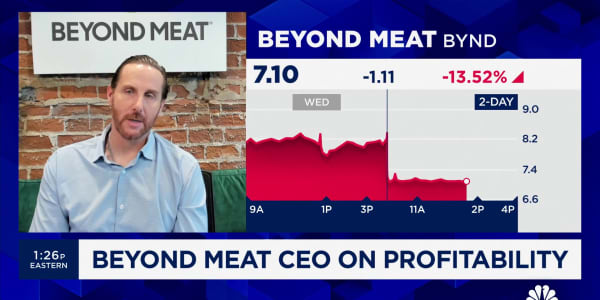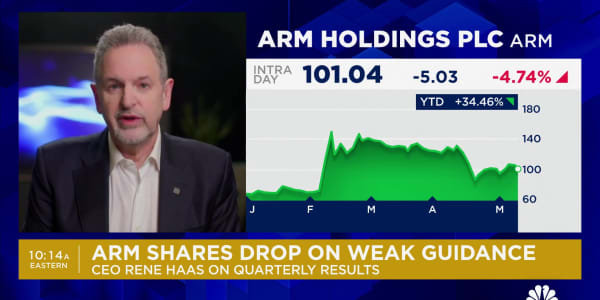Last summer, a Vancouver real estate agent named Keith Roy sold his house. About a month later, he wrote a blog post about it—and set off a firestorm of criticism from fellow real estate agents.
"I'm a REALTOR and I sold my own home 4 weeks ago. It wasn't too big or too small. It's only 6 years old and still feels new. I sold because in 6 months my home will be worth less than it is today. I think it's time to cash out," Roy said.
His argument was really simple. The supply of homes on the market was outstripping demand from buyers. Excessive supply and falling demand would lead prices downward.
But his fellow brokers felt betrayed. Some even complained that Roy had been disrespectful to the profession.
Selling his home was, however, a prescient move.
Home prices in the greater Vancouver area are down 3.9 percent from a year ago, according to the Real Estate Board of Greater Vancouver. In West Vancouver, which is sometimes said to be the wealthiest municipality in Canada, home prices have fallen 5.6 percent. Sales are down 20 percent from a year ago.
Vancouver is not alone. All over Canada there is fear that the country is in a housing bubble that is now in the process of popping. In March, Montreal saw sales decline 17 percent year over year, even while inventory continues to climb. In Ottawa, sales have fallen 16 percent.
"A housing correction—or, possibly, a crash—is no longer coming. It's here," Macleans magazine declared this past January.
The bubble seems fairly obvious, even if it's existence is still disputed within Canada. Canadian home prices are up nearly 100 percent since 2000. The price-to-rent ratios in major urban population centers are through the roof. In British Columbia, home prices rose 163 percent in the decade from 2001 to 2011, according to a study by the International Monetary Fund.
Although Canada has a reputation for having conservative banks—its banks weathered the global credit crisis without any bailouts—low interest rates have fueled a sort of mortgage and borrowing mania. Household debt has risen to a record 165 percent of disposable income. Total mortgage debt stands at $1.1 trillion.
(Read More: Canadian Bank Governor Sets High Bar to Changes)
The Canadian government is attempting to engineer a soft landing. It has tightened mortgage lending rules four times in the last four years. The maximum length of mortgages is being reduced from 40 to 25 years. Home equity loans were curtailed. And the government stopped backing mortgages on the most expensive homes.
But it's not clear how effective these measures will be. The Globe and Mail recently ran a feature titled "Canadians can still buy a house without saving their pennies." It is more or less a guide to buying a house with no money down. The website eHow has a page for doing that.
Some of the loopholes people use to avoid the mortgage restrictions are quite extraordinary. For example, although the government requires buyers to purchase private mortgage insurance on mortgages with 100 percent loan-to-value ratios, eHow says this can be avoided just by getting two mortgages, each for 50 percent of the home value.
Canadians are also allowed to borrow against pensions and life insurance policies to fund their down payments. Even credit cards can be used to fund down payments. So it's very possible that the total housing debt is actually much higher than the official mortgage debt numbers.
If this sort of thing is being openly discussed even after the government has launched its efforts to curb lending excess, just imagine what kind of shenanigans were going on before the crackdown. The quality of the mortgages made in 2011 and 2012 may turn out to be much worse than is commonly suspected. Maybe Canadian banks are not quite as conservative as conventional wisdom has it.
It would make sense for Canadian banks to be willing to make risky mortgages. Half the mortgages in Canada are government insured, which means that the lenders don't bear the default risk. The moral hazard inherent in that situation is supposedly addressed by regulation—but as we saw in the U.S., regulations can often be avoided by fraud, guile and financial innovation.
Take, for example, the innovation discovered by Cam Hui, the Qwest Investment Fund Management portfolio manager who blogs at Humble Student of the Markets.
He discovered that home buyers are using home equity lines of credit to finance the purchase of their homes. Because the rules for HELOCs are less stringent than those for mortgages, they are able to borrow far more. This essentially means they have floating rate, interest only mortgages. Because they aren't making principal payments, they can afford much larger mortgages on more expensive homes.
"It's little things like the HELOC business in this country that scare me and suggests that there is a time bomb waiting to go off in the Canadian financial system," Hui wrote.
Hedge fund manager Steve Eisman, the guy whose adventure shorting the U.S. housing market is featured in Michael Lewis' The Big Short, painted a big target on the Canadian housing market and financial sector at the Ira Sohn Investing Congress this week. Eisman is now bullish on the U.S. housing sector but thinks the home sector in Canada is going to crash.
(Read More: Housing Recovery Shows Up In Job Gains)
"It's too late for a soft-landing," he said.
Eisman pointed to a mortgage lender called Home Capital Group, which he said specialized in "nonprime" loans. Eisman said many of the loans on the books of Home Capital are from the last two years, when prices were high and underwriting standards under pressure. As banks have pulled back from Canada's nonprime market, nonbank brokers have gained market share in this kind of lending.
"If housing rolls over, this company is going to have problems," Eisman said.
(Read More: Canada's Housing Market: The Next Big Short?)
Eisman did not say explicitly whether he was short Home Capital Group or other mortgage brokers. Many hedge fund managers who believe that asset valuations in Canada are too high still shy away from shorting the country. And there does not appear to be a ready-made product for shorting Canadian housing, such as the synthetic collateralized debt obligations that John Paulson used for shorting the U.S. market.
While a falling housing market and subsequent wave of defaults would surely hit the income statements of Canadian banks, they may not have the same level of mortgage exposure as U.S. banks did because the government backstops so many of the mortgages. What's more, Canada's banking sector is so concentrated that the country would almost surely rescue any bank that did run into trouble because of mortgages.
No doubt there are hedge fund managers quietly scheming to short the housing bubble. There are Canadian REITs, for example, that would suffer in a hard landing for housing. Home builders, too. The broader Canadian stock market might suffer if home owners lose much of their wealth and find they need to sell equities to make up for the losses. The Royal Bank of Canada has a lot of uninsured mortgage exposure in the provinces that contain Vancouver and Toronto.
Megan McArdle at Daily Beast said that what we're learning is that Canada didn't avoid a housing bubble and financial crisis—it's just that the Canadian crash is "on tape delay." There may be advantages, however, to coming last to the crash party. They've seen how this works in the U.S. and Europe. They may be able to avoid some of our mistakes.
Maybe.
_ By CNBC's John Carney. Follow him on Twitter @Carney






